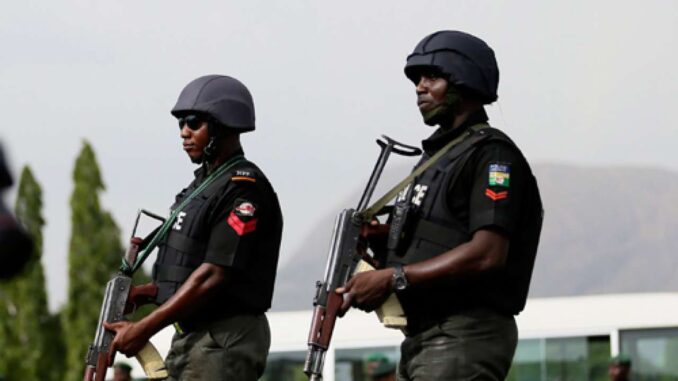
It is extremely unfortunate and indeed intolerable that youths of the five states in the Southeast geopolitical zone reportedly shun a very crucial opportunity to join the Nigerian Police Force, a highly important first line law federal enforcement agency. This must change. But the Federal Character Commission, the government agency charged with ensuring fair and balanced representation of Nigerians in government, also has a duty to implement through affirmative action, the relevant provision of the constitution in this regard.
The commissioner representing the Southeast geopolitical zone in the Police Service Commission, (PSC), Mr. Onyemuche Nnamani brought this matter up at a sensitisation seminar in Enugu. The disheartened official decried the underrepresentation of the zone in the on-going recruitment into the Nigeria Police Force. The process to engage 50, 000 men and women into the federal law enforcement agency began in 2019 on the order of President Muhammadu Buhari. Nnamani is reported to say that in the 2021/2022 recruitment exercise, the number of youths of the five Southeastern states who registered to join the force was so low that the PSC has had to, as it were, bend backward, and extend the period to accommodate late applications all with the hope that the zone can be better represented. There can be absolutely no reasonable excuse for the people of the Southeast to deny themselves this opportunity. None.
It must be said directly that this is a serious issue that must worry every Southeasterner. It is bad enough that, in their own estimation, the people of the zone suffer alleged underrepresentation in various organs of the Federal Government. For this, they have complained to whosoever listens. If now, there is an opening, such as provided by the PSC recruitment, for the South east zone to claim and to occupy its rightful positions in this federal system, there can be absolutely no excuse to not do so. That is worse than mere self-limiting, it is self denigrating. It must change.
To this end, the apex socio-cultural organisation, Ohaneze Ndigbo, Igbo professional groups, even the Houston-based Igbo World Congress, must act quickly to encourage their youths into the Police Force and any other federal agency to which each zone is entitled. It is their right, it is not a mere privilege. It is a right by virtue of Section 14(3) and (4) of the 1999 Constitution, which enjoins that ‘‘the composition of the Government of the Federation or any of its agencies and the conduct of any of its affairs shall be carried out in such a manner as to reflect the federal character of Nigeria, and to promote national unity , and also to command national loyalty, thereby ensuring that no predominance of persons from a few states or from a few ethnic or other sectional groups in that government or in any of its agencies.’’
Section153 (1) of the same Constitution establishes, along with other bodies, the Federal Character Commission (FCC). The FCC is, under Third Schedule, Part 1 (8) (1) (a) empowered to ‘‘work out an equitable formula subject to the approval of the National Assembly, for the distribution of all cadres of posts in the public service of the Federation and of the States, the armed forces of the Federation, the Nigeria Police Force, and other government security agencies, government owned companies and parastatals of the states.’’
Furthermore, the Commission is constitutionally authorised by the provision of (c) in the same section, to ‘‘take such legal measures , including the prosecution of the head or staff of any Ministry or government body or agency which fails to comply with any federal character principle or formula prescribed or adopted by the Commission.’’ This provision is also enjoined on the states in sub-section 4.
Underrepresentation, by acts of omission or commission, of sectional groups is not limited to the federal level of government; it occurs at state and local government levels. But beside that it is a violation of the laws of the land, it is immoral for the very reason that it is unjust and provocative. This is the reason that the FCC is empowered to bring the weight of the law upon violators of the letter and spirit of the relevant provisions.
Alas. In the case that Nnamani brings up, the people of the Southeast seem to willfully deny themselves their just entitlement. He rightly noted that effective policing is essentially local because ‘‘no one knows better the character of its citizens than members of that community.’’ In these times that the call for a decentralised police structure, it is all the more crucial that ‘sons and daughters of the soil’ are available under the better dispensation to secure their own people. In the Southeast, the Igbo youths must join the police and other security agencies to this all important end.
In May 2021, Ohaneze Ndigbo President-General, Prof. George Obiozor told the Senate Committee on Constitution Review that ‘Ndigbo are of the view that the federation of Nigeria must be a union of equals and the composite units must have the ability to stand without begging the centre for survival.’ It bears repeating therefore that Ohaneze that seeks to ‘foster unity among its members in order to better allow them to be representative within the political scenario of Nigeria’ must work in concert with all stakeholders to ensure that the zone fills its quota in every agency that it should, by right and by law, be represented.
END

Be the first to comment